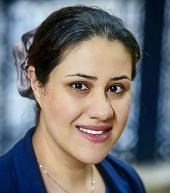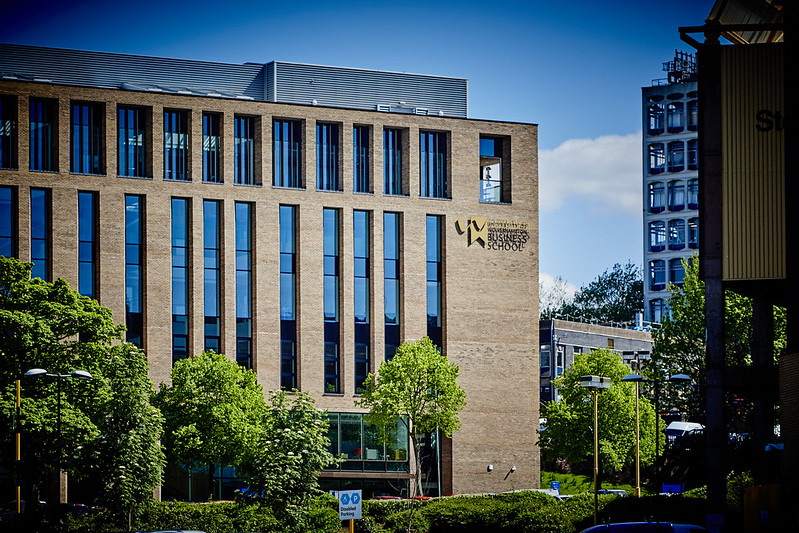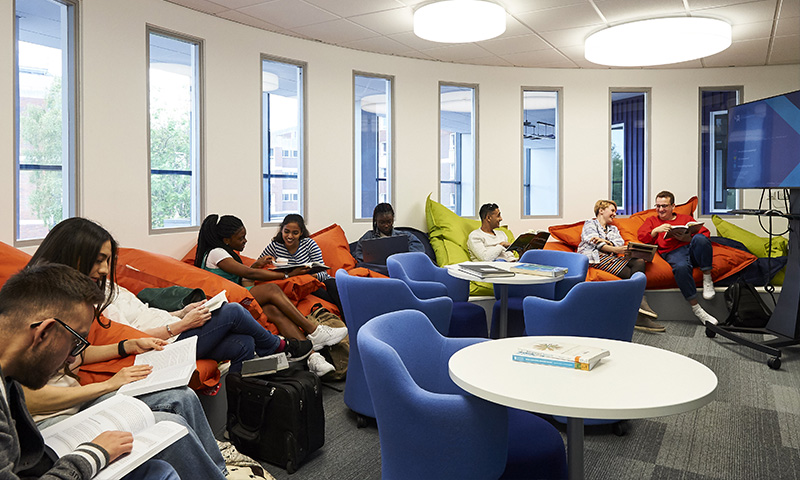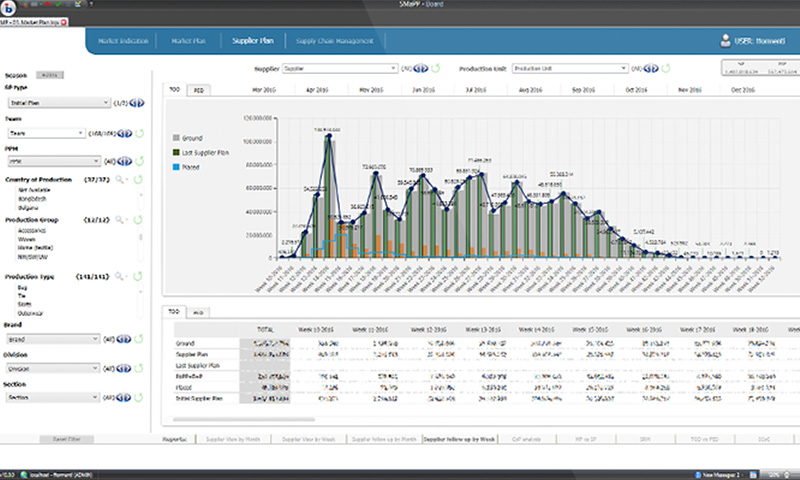The PhD programme in the School has the following three milestones:
- Registration
- Progression
- Examination
Registration
Applicants who satisfy the entry requirements are encouraged to complete the online 'Expression of Interest' form. If the initial application is satisfactory, a conditional offer will be issued and a potential supervisor will be allocated who will provide guidance on the research proposal development.
An interview will take place when the final draft of the research proposal is submitted for approval. The granting of the interview does not imply that the applicant will necessarily be admitted to a research degree programme.
Subject to the satisfactory interview and that the Faculty Research Committee (FRC) is satisfied that: a) the research proposal is sound and has the potential to deliver a postgraduate research award; and b) the proposal is appropriately resourced, the applicant will be admitted to the research degree programme
Progression
All students who wish to study for a PhD are required to complete a progression within 18 months (for full-time students) or 36 months (for part-time students).
The student at the progression needs to produce a paper which summarises his/her achievements on the research programme and outlines future research plans (including research methods), and conduct an oral presentation of the paper at a workshop set up for the progression purpose.
An independent assessor, nominated by the FRC, reviews the paper produced, together with supervisors’ assessment, the student’s presentation and other evidence. On this basis, the assessor will provide evaluative comments and recommendations to the FRC. Upon considering all aspects, the FRC may recommend that the student a) proceed as proposed; b) proceed subject to changes or amendments being made, addressing the concerns raised; c) be placed 'at risk'; or d) change the research degree originally sought.
Examination
Towards the end of the research programme, the student will be examined on the basis of a thesis and an oral examination (viva voce). Normally two qualified examiners are appointed, at least one of whom is external to the institution. If the student is a member of staff at the University, then a second external examiner will be appointed.
Following the oral examination, the examiners will make recommendations to the University’s Research Award Sub-Committee (RASC) whether the research degree sought can be awarded.
PhD Supervisors - Business

Professor Yong Wang
Yong Wang is Professor in Family Business & Entrepreneurship at Wolverhampton Business School. He served the International Family Enterprise Research Academy (IFERA), the world-leading family business research association as a Board Director during 2010-2017. In 2018, he was elected as the Fellow of IFERA.
Prof. Wang acts as the Co-Head of Management Research Centre and the Head of the Doctoral Programme at Wolverhampton Business School. He is the founding director of the Sino-Foreign Family Business Research Centre at Beijing Institute of Technology, China and holds visiting professorships at both Beijing Institute of Technology and Hebei University of Technology, China. He is a member of British Academy of Management (BAM), Institute for Small Business and Entrepreneurship (ISBE), IFERA, and International Teacher’s Programme (ITP). Read more here.

Dr Janet Firth
''I have worked in the Education Sector most of my working life. I started my teaching career in Further Education teaching Politics, and worked in three colleges at senior management level before moving to the University of Wolverhampton Business School as a Senior Lecturer in HR. I took on a Head of Department role in 2006 for the HR and Leadership Department for 16 year, moving to a part time role in 2022. I took two years out of teaching in 1999 to develop a management development consultancy; Crosby Management Training in Birmingham. When joining the University I initially taught on HRD courses and became the MSc HRD course leader, but then moved into HRM becoming a generalist.
I have been at the University since 2001 and in that time have been a Principal Lecturer for HR Portfolio Development, and in 2006 took on the Head of HR and Leadership role in the School. In 2013 and 2021 I successfully led the CIPD revalidation of the new HR professional standards. In 2017 I wrote the VC's Leadership programme for senior leaders in the University. I have extensive International experience having delivered HR management courses for 20 years all over the world. Over the last two years I was a consultant to FRONTEX; the EU Border agency. The EU project consisted of developing a degree and masters course for Border Management.
I specialise in cross cultural knowledge transfer from a HRD perspective, and have completed a PhD on developing conceptualisations of knowledge transfer in a cross cultural context. I teach on a range of generalist HR topics including, Action Learning, Organisational Change, Leadership, People Management and Development, Personal Development Planning, International HR, and HR in the EU. I have worked extensively on CPD consultancy courses, and more recently have delivered to Telford and Wrekin Council. I've also worked with Dudley Community Services, Wolverhampton Council, Assa Abloy, and completed Index Voucher Scheme projects. I have recently completed a University Innovation project.'' Read more here.

Dr Ade Oriade
Ade Oriade is senior lecturer and Head of Doctoral Programme for Business at the University of Wolverhampton, UK. His work has been published in journals such as Journal of Travel Research, International Journal of Hospitality Management, International Journal of Tourism Research, Event Management, International Journal of Management Practice, and Journal of Destination Marketing & Management. His research interests are in contemporary issues in tourism and hospitality, international hospitality business, special interest tourism, tourism development, sustainability and responsible business, and services marketing. The common thread running through Ade’s research is a unique interest in producing impactful output to create theoretical knowledge and help destinations and services sector organisations develop their products and enhance customers’ experience. For example, my research on visitor attractions experience was cited in policy document by Ministry of Youth Affairs and Sports, Iran. Ade’s research has been presented at several national and international workshops and peer-referred conferences. As co-investigator, Ade’s projects were commissioned by national and reputable organisations such as First Rate Exchange Services, Leicester Cathedral, and Lichfield Cathedral. Ade is a Senior Fellow of the HEA and serves as a member of the Editorial Board of Journal of Destination Marketing & Management and Associate Editor of International Journal of Management Practice. Importantly, Ade is passionate about teaching and facilitating learning.
Read more here.
Dr Sean Starr
Dr Sean Starr is one of three University Apprenticeship Leads. He oversees a multidisciplinary team of academics and professional services staff at the faculty level, driving the development and delivery of Leadership, Business, and Law Apprenticeships. His role emphasizes fostering excellence in teaching, learning, and professional development for our diverse student base.
In addition, he co-leads the Management Research Centre, where he focuses on impactful knowledge exchange initiatives. He aims to advance innovation and create measurable value for organizations and society by bridging the gap between academic research and practical application. He co-leads the Corporate Governance and Sustainability cluster as part of the centre. A multidisciplinary hub dedicated to advancing the understanding and practice of responsible governance and sustainability in diverse organizational contexts. Rooted in principles of leadership development and innovative research
As the Director of Executive Education, he leads diverse teams to design and deliver bespoke learning and development programmes tailored to the needs of local, regional, national, and international organizations. He focuses on cultivating strategic partnerships, enhancing organizational performance, and empowering professionals to thrive in a rapidly evolving global landscape. Read more here.

Dr Eun Sun Godwin
'I am a Management and Organisation scholar at the University of Wolverhampton Business School. Having studied Business and Economics (degree), International Development (Master’s) and International Business (PhD), my diverse research interests are driven by issues and topics relating to business and society rather than being purely discipline focused.'
Her research interests are around three key topics:
• Digitalisation from SHAPE (Social Sciences, Humanities and the Arts for People and the Economy) perspective: I am a co-investigator of a project working on inclusive digitalisation for disabled people in manufacturing industry, funded by InterAct, Made Smarter and ESRC-led hub. I have also published a commissioned policy discussion paper on digital placemaking at the British Academy.
• Sustainability and Equality, Diversity and Inclusion (EDI): I have recently completed another project funded by InterAct exploring Circular Economic models and innovation for SMEs in the aerospace industry as a co-investigator. I have also worked on various projects investigating EDI issues in diverse industries including screen, care and manufacturing.
• Work and Creative Industry: I am a Lord Paul Fellow at the University of Wolverhampton, exploring meaningful work in Heritage Craft industry. I have also worked on a project on inclusive growth through creative industries funded by PEC at the NESTA. Read more here.

Dr Shaukat Ali
Born in the Punjab, Northeast Pakistan, I grew up in Lancashire, went to the local comprehensive, and then went to Burnley College and subsequently Liverpool Polytechnic to study Electrical Engineering. I returned to my sandwich placement employer upon graduation and qualified as a Chartered Engineer in 1991.
After an MBA and PhD at Bradford University Management Centre, I taught at the Graduate School of Business Assumption University during 1997-98 and then spent two years at Bilkent University, Faculty of Business Administration, Ankara, Turkey.
I joined the University of Wolverhampton Business School in 2000. Whilst at the University, I completed a PGCE (HE) and an MA in Education.
Awards
Part of winning team - Vice-Chancellor's Awards for Staff Excellence 2021
Category: Above and beyond
"An individual or a team that has made a substantial, but largely unrecognised, contribution to our, students, staff or stakeholders – and in doing so, has gone above and beyond the high quality of service and professionalism we would expect."
awards-for-staff-excellence.
Winner of “Best Paper” Award for “SME Contributions for diversification and stability in emerging economies – An empirical study SMEs segment in Qatar Economy”. Presented at 16th Global Business and Technology Association Annual Conference, Baku, Azerbaijan, July 8-12th, 2014. With R Fernandez
Winner of E-Tutor of the year Award, University of Wolverhampton, 2006
Winner of “Best Paper” Award for “Determinants of FDI in China”, Global Business and Technology Association Annual Conference Leira/Lisbon, 12-16 July Portugal 2005. With Wei Guo.
Winner of Excellence in Innovation in Teaching and Learning Award, University of Wolverhampton, 2005. Read more here.

Dr Roya Rahimi
Roya is a reader in Marketing and Leisure Management. She is the REF coordinator of UoA 17 at the University of Wolverhampton, Business School. Her research interests are Consumer experience, Innovation, Big data, Sharing Economy, CRM, Organisational Culture, Gender Equality, and Tourism Higher Education. She has more than 50 academic publications including 3* and 4* journals with high impact factors. Her work has been published in top-tier journals such as Annals of Tourism Research, Journal of Tourism and Hospitality Research, Journal of Travel & Tourism Marketing, International Journal of Contemporary Hospitality Management, and Anatolia. Her work has been also presented at various international conferences and appears in book chapters released by Routledge, CABI, Emerald, and IGI. She has been published in a variety of languages. Read more here.

Professor Roger Seifert
''Having first worked as a management consultant in London specialising in pay, I was appointed professor of industrial relations at Keele University 1993, and then moved to Wolverhampton in 2008. I am an active researcher and consultant in the field, especially on strikes, trade unions, pay determination, Labour Party trade union relations, and public sector employment.''''Currently research into employment issues in the emergency services (fire, police, and ambulance); work experiences of BME staff in local government; impact of reforms on employment in the Ministry of Justice (prisons and courts); and reforms of health and education services.'' Read more here.

Dr Osagie Igbinigie
Dr Osagie Igbinigie is currently a lecturer in international finance at the University of Wolverhampton. Osagie is a fellowship member with the UK Higher Education Academy, also a member and a reviewer with the Academy of International Business. He has held lecturing positions at the University of Wolverhampton since 2016 (started as a Visiting Lecturer) and has assisted in the delivery of modules including; International Finance, Global Business Context, International Business Environment, Budgeting and Financial Controls, International Financial Institutions and Markets, International Investment and Portfolio Management, Finance and Accounting for Managers at the undergraduate and postgraduate levels. Read more here.

Dr Samina Mahmood
I am a Senior Lecturer and co-leads the Entrepreneurship and Small Business Management (ESBM) research cluster at Wolverhampton Business School. I lead a team of researchers focused on advancing knowledge in entrepreneurship and SME development. As the Postgraduate Research Tutor for Business and Law, I also oversee the PhD students' programme in the Business and Law Schools.
My expertise centres on gender dynamics, entrepreneurship, digitalisation in SMEs, and women’s leadership, as demonstrated by my membership in the Gender and Enterprise Network Committee of ISBE. I am especially committed to supporting women in business leadership and SME growth within the Midlands. My research addresses key challenges such as barriers to accessing finance, the role of digitalisation, and the contextual factors that influence entrepreneurial success. I am also working on exploring gender issues in manufacturing and engineering in the West Midlands. Moreover, I am interested in the impact of microfinance/SME finance on entrepreneurship development and poverty reduction. These insights can provide practical, evidence-based strategies for businesses aiming to innovate and grow. Read more here.

Professor Laura Caulfield
Professor Laura Caulfield PhD is Director of the Institute for Community Research and Development. Laura has been undertaking research with public, private, and third-sector agencies since 2001 to tackle complex social issues, and is an expert in bridging the gap between evidence, policy, and practice.
In 2017 Laura launched the Institute for Community Research and Development, working with communities, practitioners, and policy makers to use research and evidence to improve people's lives. Laura is a Psychologist and much of her research focuses on the impact of interventions in and around criminal justice. She has received funding from the Home Office, Economic and Social Research Council, the Arts Alliance, the NHS, Arts Council England, the Ministry of Justice, and several third-sector organisations. Laura has significant leadership experience and has held Director of Research roles since 2012. Read more here.

Dr Ian Jackson
''I am an applied Industrial Economist with thirty years of experience. I have worked for almost 30 years in Higher Education mainly in the UK. Also, I have taught Economics and Finance in Belgium, Bosnia, China, Croatia, Czech Republic, France, Germany, Hong Kong, Italy, Jordan, Lebanon, Kosovo, Malaysia, Palestinian Territories and Spain.'' Read more here.

Dr Crispin Dale
Crispin is a Principal Lecturer in the Faculty of Arts, Business and Social Sciences. In addition to lecturing he has responsibility across the Faculty for learning and teaching. Crispin was also responsible for leading the institutions Learning Technology and Pedagogic Research Cluster from 2007-09. Crispin’s Master’s degree is in Tourism and Leisure, and he holds a PhD. His teaching focuses on cultural heritage and promoting professional experience and employability in the arts. Read more here.

Dr Jenni Jones
''My career has been a mixture of Human Resources Management and Human Resources Development roles within both the private and public sector. I worked for the Prudential for 8 years (1992 to 2000), and had a variety of roles including HR and Training Manager (at their Regional Service Centre, Chester) and Management Development Consultant (at their Head Office, London). These roles gave me an opportunity to develop my skills within a generalist HR role and within a specialist HR Development role. I then moved to Britvic Soft Drinks (at their Head Office, Chelmsford) as their Performance and Development Manager, carrying out HR related projects across the Operations, Sales and Logistics parts of the business, including implementing the new performance management strategy and managing their graduate schemes (2000 to 2002).
Then, I moved into a Consultancy role (SBC Training Consultancy) supporting Government initiatives (NVQs, Employer Training Pilots etc.) and became their Professional Programmes Manager, working closely with Assessors, Managers, Auditors, etc.(2003-2004). In 2004, I joined the University of Wolverhampton Business School, where I teach both undergraduate and postgraduate courses. I am the Course Leader for the PGCert/MA in Coaching and Mentoring Programmes (since 2005), the University lead for all the ILM Coaching and Mentoring programmes and lead the Business School/Institute of Directors Student Mentoring programme (since 2010).'' Read more here.


/prod01/wlvacuk/media/departments/digital-content-and-communications/images-18-19/iStock-163641275.jpg)
/prod01/wlvacuk/media/departments/digital-content-and-communications/images-2024/250630-SciFest-1-group-photo-resized-800x450.png)
/prod01/wlvacuk/media/departments/digital-content-and-communications/images-18-19/210818-Iza-and-Mattia-Resized.jpg)
/prod01/wlvacuk/media/departments/digital-content-and-communications/images/Maria-Serria-(teaser-image).jpg)
/prod01/wlvacuk/media/departments/digital-content-and-communications/images-2024/241014-Cyber4ME-Project-Resized.jpg)
/prod01/wlvacuk/media/departments/digital-content-and-communications/images-18-19/210705-bric_LAND_ATTIC_v2_resized.jpg)



















